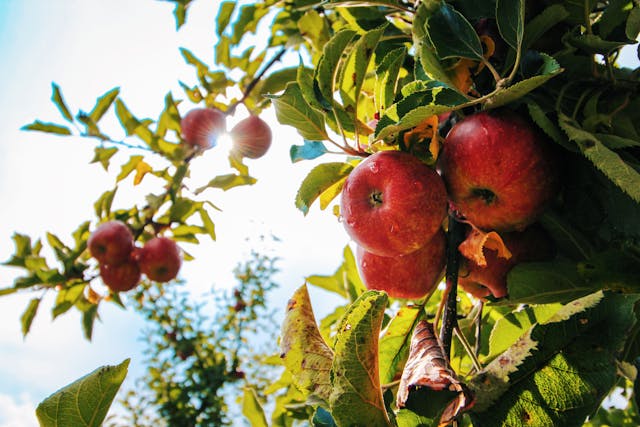Producers and farmers warn of a mass exodus from the agriculture industry because of the low prices being paid for their goods by major supermarkets.
A Senate committee examining supermarket prices has held hearings on Tuesday at Orange in the NSW Central West, with farmers laying bare their struggles dealing with the powerful duopoly of Coles and Woolworths.
Orchard owner Guy Gaeta, who grows apples and cherries, said major supermarkets had set prices too low for produce, making the future unviable for growers.
“Every year on the news, Woolies is saying they pay people millions of dollars, but yet they put on us whatever they want,” he told the inquiry.
“At the rate we’re going … there won’t be any family farms left within five to 10 years, or you’re going to have corporate farms and they’re going to be as good as citizens to the consumer as what they are now, and it is scary.
“If you don’t have family farms, you’re going to lose your food security.”
Macquarie River Food and Fibre executive officer Michael Drum told the inquiry family farms would reduce in number, with larger corporations expected to take over, because of the conditions.
“The cost of land alone is debilitating … realistically, the only people who have driven the property market in the agricultural sector over the last five to 10 years has been corporates coming in and … buying in significant amounts,” he said.
“Is corporatisation of farming in Australia the future? In my view, absolutely.”
The Senate inquiry was set up following claims of price gouging of consumers by major supermarkets.
But primary producers have warned the market power of supermarkets means they can buy goods cheaply.
Another orchard farmer Ian Pearce told the committee prices set for goods by supermarkets had largely stayed unchanged over several years, despite labour costs increasing.
“In 2011, we got $2.37 a kilo and $2.55 a kilo. Last year in September, similar timing, $2.60 and $2.57 a kilo,” he said.
“We’re very dependent with apples on the domestic market … we’re caught in a cost price squeeze.”
Farmers’ Group president of Dairy Connect, Graham Forbes, told the committee mandatory codes of conduct needed to be brought in across the grocery sector.
It was not a silver bullet but it would address some of the concerns, he said.
A mandatory code for the dairy industry, introduced in 2020, had addressed some issues in the sector, Mr Forbes said.
“It just made a big difference to us when we’ve been negotiating with some of the companies,” he said.
“The code is not a panacea for all industries. The desire for supermarkets to increase their profit and market share at expensive farmgate price is still illustrative of the ongoing issues confronting dairy farmers.”
A separate inquiry by former Labor minister Craig Emerson is examining whether the grocery code should be made mandatory.
Outside the hearing, Independent MP Andrew Gee and Queensland MP Bob Katter held a press conference accusing the major parties of inaction on supermarket pricing.
The MPs stood alongside staffers dressed in inflatable pig costumes holding a banner saying: “Stop supermarket hogs and National Party porkies!”
Nationals senator Ross Cadell watched on and accused Mr Gee, who sensationally quit the party in 2022, of being a “stunt man”.
“You did nothing when you were a Nat because all you’re about is the stunts,” Senator Cadell said.
Mr Katter then accused Senator Cadell of playing politics.
The exchange became heated when Mr Katter approached Senator Cadell and told him to stop interrupting.
“Now, shut up,” Mr Katter said, pointing his finger at Senator Cadell.
Mr Gee said the independents on the crossbench and Mr Katter would introduce a bill to cut back the power of the major supermarkets and limit their profits on fruit and vegetables.
The inquiry will recommence on Wednesday in Melbourne, with consumer groups set to give evidence.
Andrew Brown and Steph Gardiner
(Australian Associated Press)





